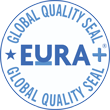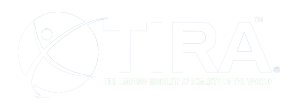
Our General Manager Marie O’Neill was honoured to participate in the recent EuRA (The European Relocation Association) panel discussion – Care & Costs; The Impact of Covid on Fees. Hosted by Dom Tidey and Peggy Love from EuRA, Marie was joined by Alistair Murray from Relocation Support Services, James Speirs from Clearmove and Fiona Mougenot from Expat Partners. These experts in the field came together to share thoughts and experiences garnered in recent months and how the relocation industry might be, and will be, affected moving forward. If you weren’t able to catch the briefing, which is available here on You Tube, we wanted to take you inside this meeting of minds and what they had to say.
More for Less
As globalisation and modern technology has increased competition, all businesses have had to deal with the concept of ‘more for less’. Pricing is vital in terms of sustainability and appeal, an ever-present challenge to finding the right balance. The onset of the Covid-19 pandemic has exacerbated this concept even further, especially in light of its impact on economies all over the world. Companies from all walks of life are having to manage tighter budgets and reduced consumer spending, whilst still being able to retain quality of product and achieve strategic necessities. As Peggy Love mentioned, sadly there isn’t a secret trough of ‘golden nuggets’ to resolve this conundrum, but by communicating and collaborating we can find more effective solutions that could work for your business.
Managing the Unpredictable
As many other industries will be experiencing, the relocation and immigration sector is having to deal with not only a day to day unpredictability but a gaping uncertainty in regards to the future. Whilst clients still need these services in order to sustain their business, the actual process of coordinating relocation and immigration is far more intricate thanks to the ever-evolving situation. Relocation projects that would have traditionally been three months in length are now six to twelve, assignees that would have been able to ask colleagues destination questions now need that information from their consultants and each new visa now requires the completion of many more elements before being issued. Grasping these new factors and balancing those against your own costs, as well as managing a team that is able to adapt accordingly, is the only way to steer forward successfully.
Understanding Value
It isn’t difficult to understand why everyone is even more concerned about their budgets in 2020, but that doesn’t mean that need goes away. Companies still need to handle employee mobility, international relocation and immigration. The fact is that those things are even more complicated right now. Facilitating relocations and appropriate immigration components requires even more steps and elements than in previous years, so reducing prices isn’t really an option. The key is finding balance. As the old adage goes, ‘you get what you pay for’, so most clients understand the value of the services we provide and the costs incurred. As James Speirs shared, they will be best served by the right cost, not necessarily the lowest cost. How you increase the value for those clients in is the calibre of your service, the extra touches and additional services tailored to our unique situation. You need to be able to educate clients about why more is needed and how your services will have to change. As we previously talked about in our business continuity article – adaptability is crucial. When clients know they are getting high quality service, they can justify the investment. When they know that your team will go above and beyond, they can avoid extra stress. When you can provide new services that tackle the new reality, clients can find solutions to unforeseen issues and ensure compliance with all relevant requirements.
The Bottom Line
When it comes to how to manage your costs in light of the ‘new normal’, there isn’t a one-sized fits all approach. In some cases organisations have been able to swallow additional costs in order to retain clients, but worry about how long to sustain that approach. Others have been quick to increase consultation fees but risk clients finding more cost-effective solutions. New caveats have had to be introduced, like cancellation fees, since new rules from governments or client budgets can change outcomes at a moment’s notice. Even a mix of these elements can’t completely compensate for the realities of having a team that is working harder than ever for potentially less work or income. At EER, to manage the extra attention and detail our team have to provide to assignees, we have focuses on technological solutions that can save time, not only for us, but for clients. The digitalisation we have implemented at EER has not only contributed to our overall efficiency, it has expanded our service provision in line with current realities in terms of virtual connections and social distancing with aspects like e-signature documents and our Virtual Home Search. Innovation and flexibility are essential to managing increased requirements, client needs and your internal costs in order to keep being as productive as possible.
Moving Forward
Without a definitive ‘light at the end of the tunnel’ to this pandemic and a current rise in numbers, it is infinitely difficult to cement your approach to costing. To guarantee a sustainable supply chain, your company needs to meet certain milestones but to do that, it may require cost cutting or adding services to existing fees for free. By demonstrating our ability to meet the expanding scope within relocation and immigration services, we underline our value to clients, the return they get on their investment and therefore pave the way for them to retain our services even potentially at an increased cost. Remember you are selling time and knowledge, which they may not be able to find of the same quality elsewhere, before you jump to potentially harmful reductions. Whatever the future holds for the industry, it is vital that we focus on expectations, knowledge and consultation when it comes to evaluating our abilities, our offering and how best to service and communicate with our clients.





